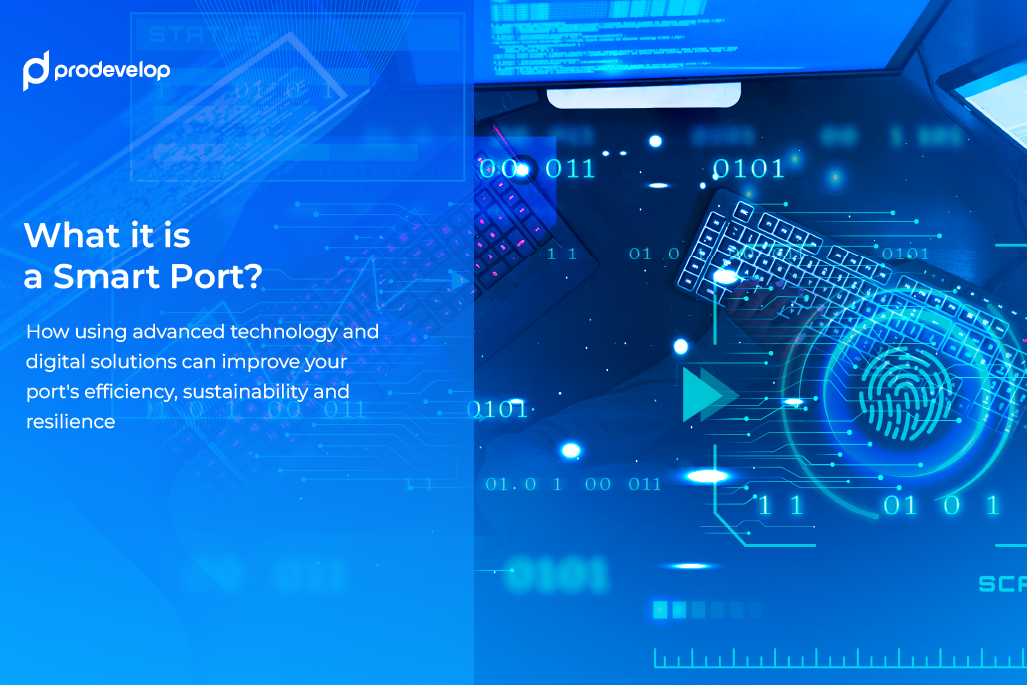A Smart Port is a port that uses advanced technology and digital solutions to improve port efficiency, sustainability and resilience.
It is able to integrate and manage a wide range of systems and processes, including ship loading and unloading operations, goods movement, traffic management, energy management, information and communication systems and sensors.
It also can optimise the management of its resources and processes through automation and the use of advanced data and technologies. This may include the use of drones and robots to perform inspection and maintenance tasks, the use of sensors and monitoring systems to obtain real-time information on the state of the port, and the use of information management systems to optimise decision-making.
In addition, a Smart Port can use information and communication technologies (ICT) to improve collaboration and communication between different port stakeholders, such as port authorities, shipping companies, shipping agents and port workers. This may include the use of digital platforms for traffic management and operations planning, the use of unified communication systems to improve communication between different port stakeholders, and the use of Geographic Information Systems (GIS) to visualise and manage the port’s spatial information.
Finally, a Smart Port must also be able to manage and mitigate the risks and challenges it faces, such as climate change, security issues and operational disruptions.
If you want to learn more about Smart Ports, don’t be shy and write us, we will gladly solve any doubts you get. 😉




